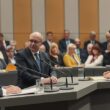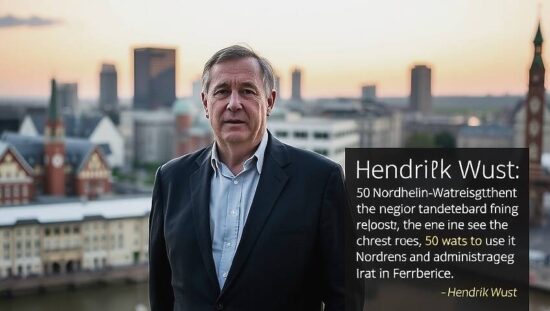NRW’s Prime Minister Hendrik Wüst (CDU) has commemorated the municipal reorganization in North Rhine-Westphalia 50 years ago.
“The territorial reform was an important step to make the municipal administration in North Rhine-Westphalia future-proof” he told the Westfalenpost (Thursday edition). In the past decades, the tasks of the administration have become increasingly demanding. “Therefore, it makes sense that not everyone does everything anymore.”
As of January 1, 1975, the Ruhr Area Act and the Sauerland-Paderborn Act came into effect, merging a large number of municipalities and districts and reorganizing them. In total, around 2,300 independent municipalities in NRW were reduced to 396 cities and municipalities. Many municipalities lost their autonomy. For example, Wattenscheid merged with Bochum, Wanne-Eickel with Herne, or Neheim-Hüsten with Arnsberg. Administrative units like the High Sauerland District and the Märkischer Kreis were newly founded.
Despite the laudatory words for the 1975 municipal reorganization, Minister President Wüst does not see it as a model for the present: North Rhine-Westphalia does not need further territorial reforms. “As a state, we enable municipalities to cooperate on a voluntary basis through law.” This is the case, for example, in waste and wastewater management, food monitoring, or personnel administration.
The municipal reorganization sparked strong protests on the ground about 50 years ago. However, Wüst is convinced that there is now a high level of acceptance for the reorganization: “The consolidation of communities was certainly not easy for everyone at the beginning. But it was also a chance to grow together anew. I am convinced: It has settled in the meantime. One cannot, however, force people to feel a sense of home.” One can “feel Wattenscheid as home or Bochum – and even both.





